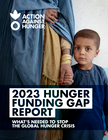Click to expand Image
Chairs are placed on classroom tables at a closed public school in Beirut, Lebanon September 22, 2022.
© 2022 Mohamed Azakir/Reuters
Thousands of Syrian refugee students in Lebanon are being cut off from classes, all, according to officials, in the name of “equality.”
Amid Lebanon’s financial crisis, teachers’ strikes against the massive devaluation of their salaries led to the suspension on January 9 of “morning shift” classes, attended mainly by Lebanese students. On January 10, the Education Ministry, which has received funds from foreign donors to teach Syrian as well as Lebanese students, closed “afternoon shift” classes –attended by refugee children – seemingly by choice, not necessity. “It is not acceptable that our children do not learn while the children of others do,” a ministry official said. Officials reportedly explained their decision to kick refugee children out of school in the name of “equality.”
The Center for Lebanese Studies (CLS), an independent research group, is being punished after criticizing the ministry’s decision.
On January 19, the Center for Lebanese Studies published a statement that slammed the Education Ministry’s decision as “racist.” The center was based at Lebanese American University in Beirut. On February 3, the university informed the center that it had terminated their relationship.
In its letter of termination, the university said its decision was based on the fact that the center had used a logo identifying the university in the statement without authorization. Yet according to the Center’s staff, the university had asked it in 2022 to identify the university more prominently in its publications. The center had taken down the university’s logo and added a correction to the statement before its relationship was terminated.
The university’s letter also said that the center’s statement risked “negatively affecting [the university’s] relationship with the Ministry,” which licenses universities and accredits degree programs. In an email to Human Rights Watch, the university said the CLS statement was “political,” published amidst “a very volatile situation” in the country, and that “we must avoid any political or sectarian affiliation at all cost.”
Human Rights Watch has partnered with the Center For Lebanese Studies on education research in Lebanon, where a million children are out of school. The center has criticized the Education Ministry as well as foreign donors for failures to ensure education for Lebanese and refugee children.
The center, which is financially independent and affiliated with Cambridge University in the United Kingdom, will survive. But the perception of political red lines or government retaliation against groups seeking to hold power to account is extraordinarily dangerous. Donors funding Lebanon’s Education Ministry should ensure any undue influence in the case is credibly investigated and that the Center is not punished for criticizing the ministry. The Education Ministry should re-commit to fulfilling the right to education of every child in Lebanon.



